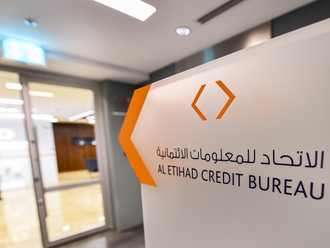Dubai: The uncertainty in Europe sparked by the Greek debt crisis underscores the need for keeping US interest rates low for an extended period, a top Federal Reserve official said on Friday.
Moderate US economic growth, high joblessness and low inflation mean the Fed's current near-zero interest rates are appropriate, Chicago Fed President Charles Evans said.
The $1 trillion European rescue package is likely to help beat back the threat of contagion from the European debt crisis to the US.
Euro
The European Central Bank (ECB) camouflaged the evidence of its government bond buying activities on Friday, masking its actions and intentions from markets in a bid to maximise their potency.
In its daily breakdown of market operations, the ECB scrambled the extent of its recent bond purchases by folding the total into its estimate of autonomous (special) factors that impact the euro zone banking system's liquidity needs.
The euro zone's central banks began buying bonds on Monday after the ECB abandoned its resistance to it as part of a $1 trillion attempt to resolve the crisis gripping the region.
There is still no hint, however, of how much the ECB is prepared to spend, what maturities it will target, if it has specific aims for yields or how long it expects the process to take.
A euro zone monetary official told Reuters lastweek that the ECB would not reveal the total to avoid aiding speculators. One hope for analysts is that the ECB will give a clearer picture of its buying so far on Tuesday when it publishes its weekly balance sheet update. ECB Executive Board member Jose Manuel Gonzalez-Paramo has also promised more details this week, including how the bank plans to offset the inflationary impact of the bond buys.
Range for previous week: $1.2352 - $1.3093 (Dh4.5369 - Dh4.8091).
Range for this week: $1.2290 - $1.3030 (Dh4.5141 - Dh4.7859).
Sterling
The Bank of England (BoE) said that it bought £5 million of corporate bonds during the week to May 13, taking total holdings under its Secondary Market Scheme to £1.41 billion. No sales or purchases of commercial paper took place, leaving total holdings at £51 million respectively.
Gilt holdings remained constant at £198.275 billion, purchased between March 2009 and January 2010. The BoE completed a planned £200 billion of quantitative easing asset purchases at the end of January and has given no indication it wants to change these holdings in the short term.
Sales and purchases of commercial paper and corporate bonds are aimed at ensuring market liquidity and do not have a monetary policy objective.
Heading into a new week, investors have had the fears of an imminent meltdown in sovereign debt calmed by a massive European rescue plan. So now they are left looking at the global economic climate and wondering if growth is sustainable or deficits too large to create a stable market environment.
They will get some guidance from a gathering of euro zone finance ministers, a Bank of Japan meeting and the latest minutes from the Federal Reserve and Bank of England.
Weekly investment fund flow data will also be of particular importance, signalling whether a flight to safety prompted by the fears of a Greece default and a potential domino effect elsewhere is being reversed or remains in place.
"Our sense is it is likely to work because the price of failure will be so high we expect euro zone policy makers to work very hard to make it work," said John Lomax, head of emerging market equity strategy at HSBC.
Range for previous week: $1.4474 - $1.5053 (Dh5.3163 - Dh5.5290).
Range for this week: $1.4410 - $1.4990 (Dh5.2928 - Dh5.5058).
Yen
The Bank of Japan (BoJ) is considering a new loan programme aimed at encouraging private banks to lend more to industries with growth potential, in what it describes as a long-term approach to beating deflation.
The framework may be announced at a rate review this week or at the following policy meeting in June.
The programme is important because the BoJ has flooded markets with cash, but the money is not flowing into broader sectors of the economy.
The BoJ thus wants to redirect money to industries with areas of potential new demand as part of an effort to boost Japan's productivity and potential economic growth, which now hovers around 0.5 per cent.
The central bank hopes the move will pressure the government to craft a credible plan to meet its target of achieving annual economic growth of more than 2 per cent over the next decade.
Range for previous week: 90.82 yen - 93.62 yen (Dh0.039233 - Dh0.040443).
Range for this week: 90.10 yen - 94.22 yen (Dh0.038983 - Dh0.040766).












